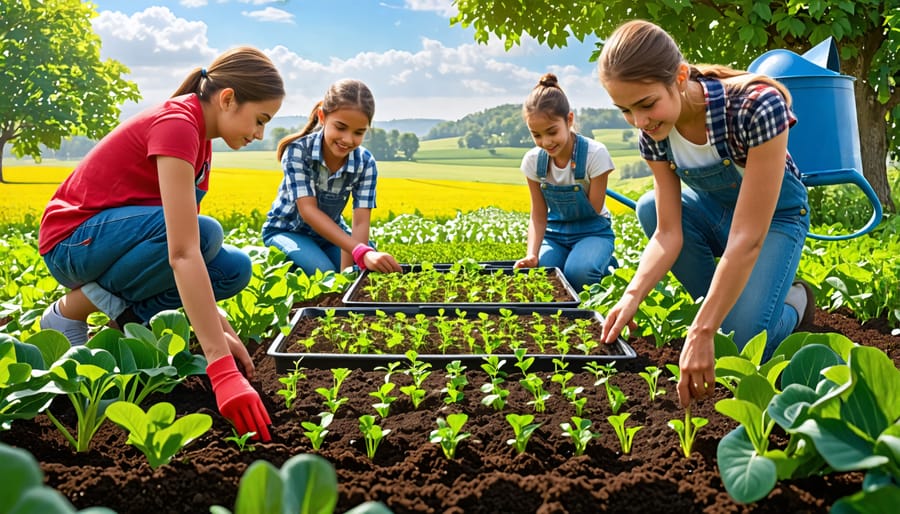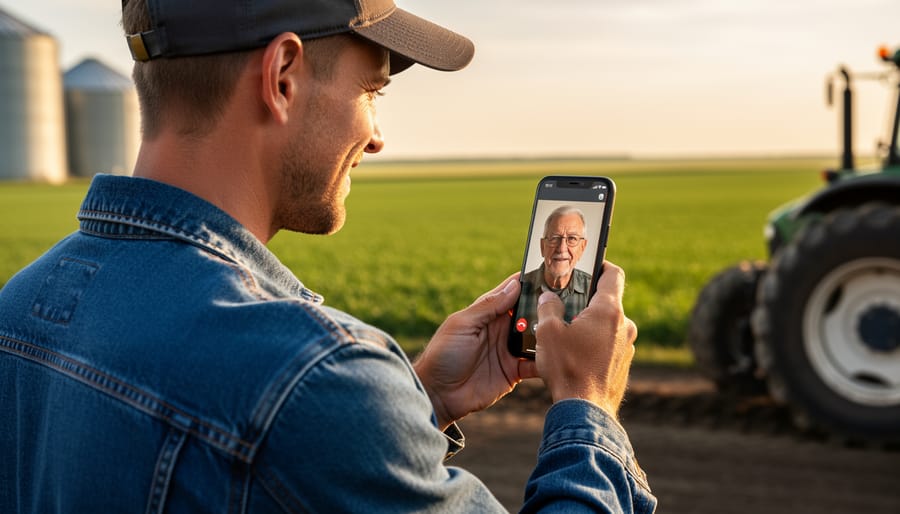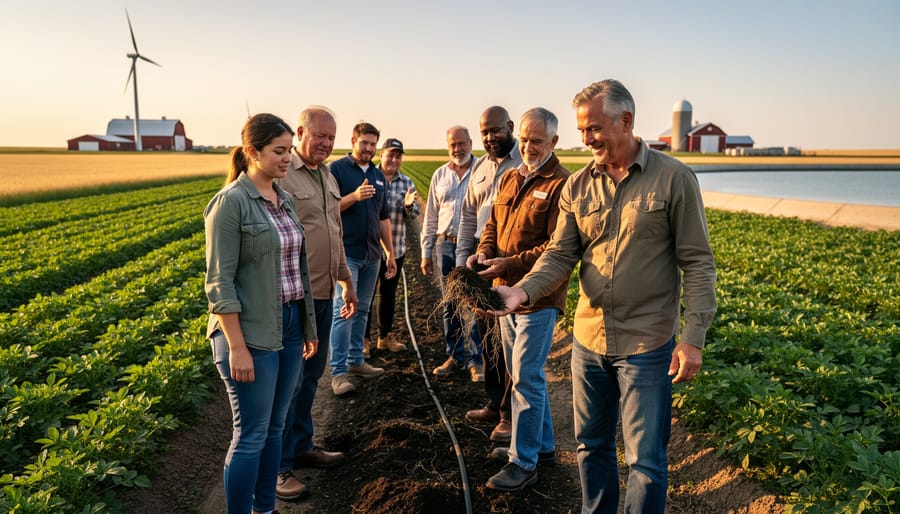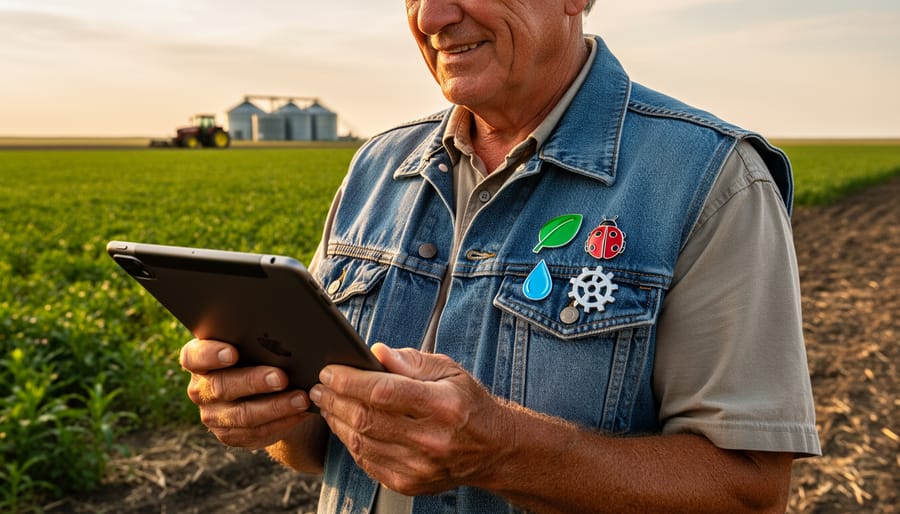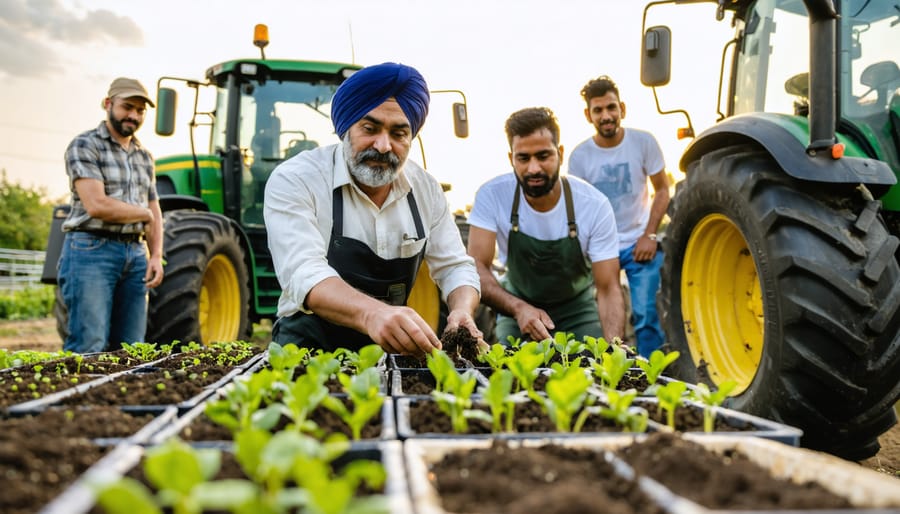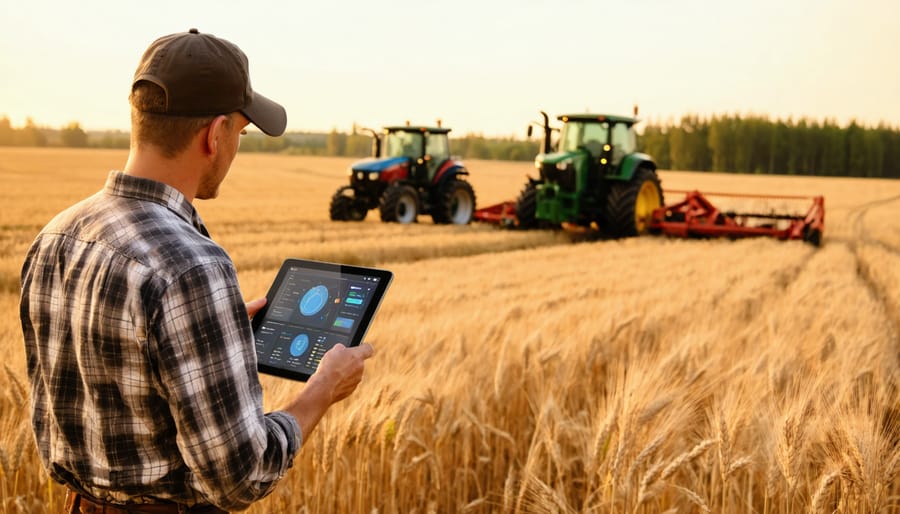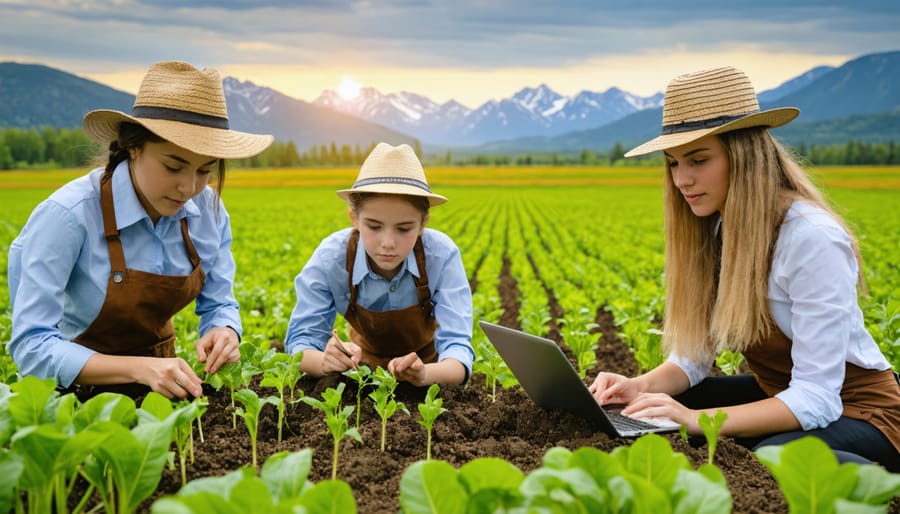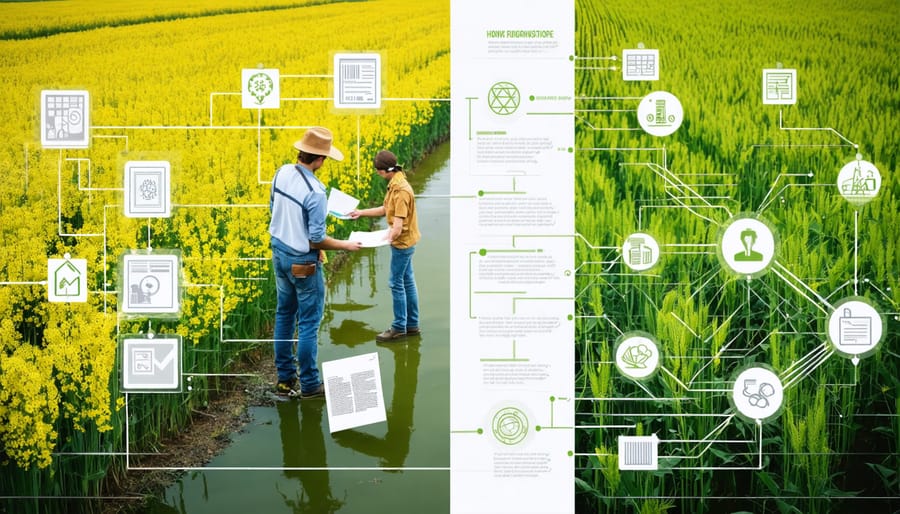Inspire the next generation of sustainable farmers with hands-on agricultural activities. Partner with local farms to offer field trips where students see sustainable practices in action. Develop engaging lesson plans that teach the science behind soil health, crop rotation, and water conservation. Have students design and tend their own school garden to grasp the challenges and rewards of growing food. Bring in guest speakers – farmers, agronomists, and researchers – to share their expertise and ignite students’ curiosity about agriculture careers. By connecting classroom learning with real-world applications, we can cultivate both healthy crops and young minds passionate about feeding the future, sustainably.
Planting and Harvesting Workshops
Seed Starting and Transplanting
Starting seeds indoors is an exciting hands-on activity that teaches students about plant growth and development. Begin by demonstrating how to fill seed trays with a high-quality seed starting mix, then guide students in planting seeds at the appropriate depth. Discuss the importance of proper labeling, watering, and providing adequate light for optimal germination. As the seedlings grow, involve students in monitoring progress and caring for the young plants.
When the weather warms and seedlings are ready, it’s time to transplant them to the field. Show students how to prepare the planting area by removing weeds, loosening soil, and adding organic matter. Demonstrate proper transplanting techniques, such as handling seedlings gently, planting at the correct depth, and firming soil around the roots. Encourage students to take ownership of their transplanted seedlings by regularly watering, weeding, and monitoring for pests or diseases. Through this hands-on experience, students gain a deeper understanding of the plant life cycle and the effort required to nurture crops from seed to harvest.
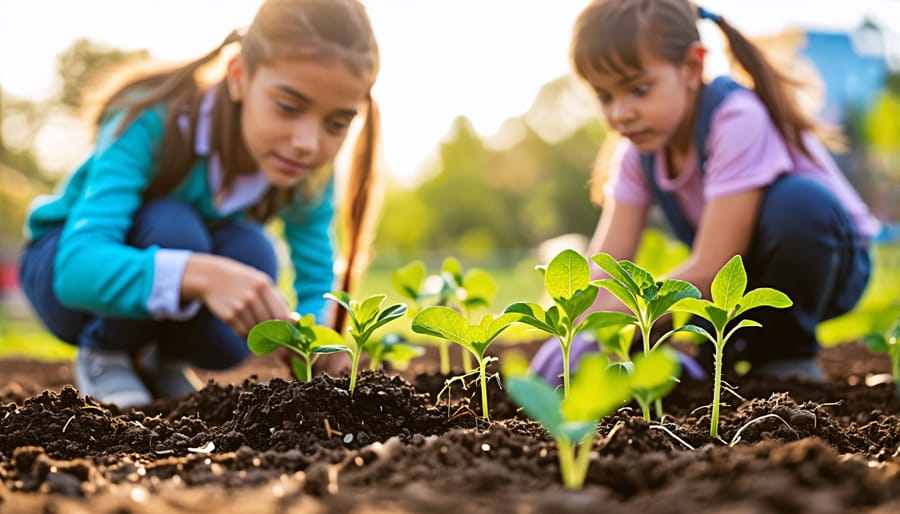
Crop Rotation and Companion Planting
Introduce students to the fascinating world of crop rotation and companion planting, two essential practices for maintaining healthy soil and controlling pests naturally. Explain how rotating crops in a specific sequence, such as planting legumes after grains, helps replenish nutrients and prevent soil depletion. Highlight the benefits of companion planting, where certain crops are grown together to deter pests or improve growth. For example, planting marigolds alongside tomatoes can ward off nematodes. Engage students with hands-on activities, like designing their own crop rotation plans or creating a companion planting chart. Invite a local farmer or agricultural expert to share their experiences and demonstrate these practices in action. By understanding the importance of crop rotation and companion planting, students will gain valuable insights into sustainable agriculture methods that promote soil health and reduce reliance on synthetic pesticides.
Soil Health and Composting Activities
Building and Maintaining a Compost Pile
Building and maintaining a compost pile is an excellent hands-on activity for students to learn about the importance of reducing waste and creating nutrient-rich soil. To start, have students collect organic waste from the school cafeteria or partner with local farms to gather materials such as vegetable scraps, coffee grounds, and leaves. Demonstrate how to layer these materials with carbon-rich items like straw or paper, maintaining a balance of green and brown components. Emphasize the importance of moisture and aeration by having students regularly turn the pile and monitor its temperature. As the compost breaks down, discuss the role of microorganisms in the decomposition process and how this natural recycling system benefits soil health. Once the compost is ready, have students use it to nourish the school garden or donate it to local farmers, fostering a sense of community involvement and sustainable practices.
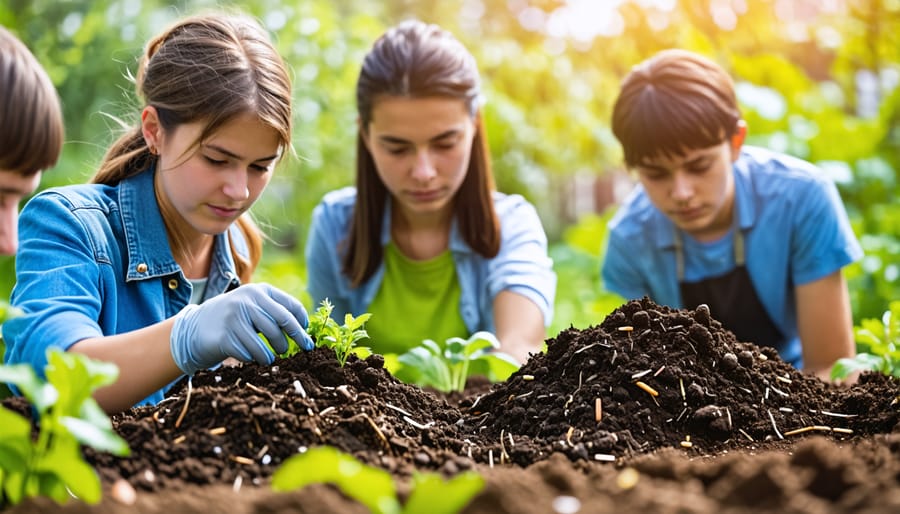
Conducting Soil Tests and Interpreting Results
Engaging students in soil testing is a hands-on way to teach them about the importance of healthy soil for successful agriculture. Begin by demonstrating how to collect soil samples from various locations in a field or garden. Then, guide students through basic tests for soil pH, nutrient levels, and texture using affordable kits or DIY methods. Explain how to interpret the results and make informed decisions about soil amendments, such as adding organic matter or adjusting pH levels. Encourage students to keep records of their findings and discuss how different soil characteristics can impact plant growth and health. By connecting soil science to real-world applications, students will gain a deeper appreciation for the role of soil in sustainable agriculture and be better prepared to make data-driven decisions as future farmers or gardeners.
Farm Animal Care and Welfare Lessons
Engaging students in hands-on learning about farm animal care and welfare is crucial for fostering a deeper understanding and appreciation for sustainable agriculture practices. By organizing visits to local farms or bringing farm animals into the classroom, students can observe firsthand how Alberta farmers prioritize the well-being of their livestock.
During these interactive sessions, students will learn about the basic needs of farm animals, such as proper nutrition, clean water, shelter, and healthcare. They will discover how farmers ensure their animals receive balanced diets, regular veterinary check-ups, and appropriate living conditions. Emphasis will be placed on the importance of low-stress handling techniques and providing animals with the opportunity to express their natural behaviors.
Through discussions with experienced farmers and agricultural professionals, students will gain insights into the link between animal welfare and sustainable farming practices. They will learn how content animals are more productive, require fewer antibiotics, and contribute to a healthier agricultural ecosystem. Case studies of Alberta farmers who have successfully implemented animal welfare best practices will showcase real-world examples of responsible livestock management.
By engaging in these immersive learning experiences, students will develop a greater sense of empathy and respect for the animals that play a vital role in our food system. They will be inspired to become advocates for animal welfare and sustainable agriculture within their communities, helping to ensure a brighter future for both livestock and the environment in Alberta and beyond.
Agricultural Technology and Innovation Tours
Alberta is home to a thriving agricultural industry, and there’s no better way to see the latest innovations in sustainable agriculture than by visiting local farms, research centers, and agtech companies. These tours offer students a unique opportunity to witness firsthand how technology is transforming the way we grow food while reducing the environmental impact of farming.
During these educational visits, students will learn about cutting-edge tools and techniques that Alberta farmers are using to optimize crop yields, conserve water, and minimize the use of pesticides and fertilizers. From precision agriculture systems that use GPS and satellite imagery to guide planting and harvesting decisions, to advanced irrigation methods that deliver water directly to plant roots, these innovations are helping farmers work smarter, not harder.
In addition to showcasing the latest tech, these tours also provide a platform for discussing the challenges and opportunities facing Alberta’s agricultural sector. Students will hear from farmers, researchers, and industry experts about the importance of adopting sustainable practices to ensure the long-term viability of our food system. They’ll also learn about the role that consumers can play in supporting local, environmentally-friendly agriculture.
By the end of these tours, students will have a deeper appreciation for the hard work and ingenuity that goes into producing the food on their plates. They’ll also be inspired to think creatively about how they can contribute to building a more sustainable future for Alberta’s farms and communities. Whether they pursue careers in agriculture or simply become more informed consumers, these experiences will help shape the next generation of leaders in sustainable food production.
Conclusion
In conclusion, engaging students in agricultural activities is crucial for ensuring a sustainable future for Alberta’s farming community. By providing hands-on experiences and educational opportunities, we can inspire the next generation of farmers and agricultural professionals to embrace sustainable practices and innovative solutions. Through workshops, farm tours, and mentorship programs, students can gain a deeper understanding of the challenges and rewards of working in agriculture, while also developing a strong connection to the land and their local community.
As Albertans, we all have a role to play in supporting agricultural education initiatives. Whether you are a farmer, an educator, or simply someone who cares about the future of our food system, there are many ways to get involved. Consider volunteering at a local farm, mentoring a young farmer, or advocating for agricultural education in your community. By working together, we can build a thriving and sustainable agricultural sector that will benefit all Albertans for generations to come.

